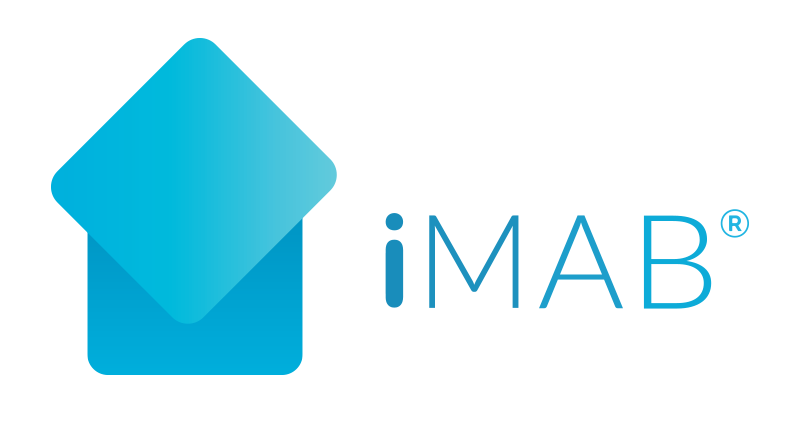Independent Home Mover Mortgage Advice
What is a home mover?
A home mover is an individual, couple or family who are moving from one property to another. Home movers usually need to take out a new mortgage to finance the purchase of their new home and will need to go through the mortgage application process again.
Home movers are typically selling their current property and using the sale proceeds towards the deposit on the purchase of their new home, but they may also be someone who has owned and sold a property in the past and is currently renting or perhaps temporarily living with family or friends.
Overall, a home mover is simply someone who is in the process of moving from one home to another and who is not buying a property for the first time.
How we can help
It’s a good idea to speak to one of our mortgage advisers when moving home. A mortgage adviser can help you understand the different types of mortgages available, explain the application process, and provide advice on how to choose the right mortgage for your individual circumstances.
Here are some specific reasons why you might want to speak to a mortgage adviser when moving home:
Help you find the most suitable deal: A mortgage adviser can help you compare mortgage deals from different lenders and identify the most suitable one for your needs.
Save you time: A mortgage adviser can help guide you and save you time by doing the research for you.
Provide expert advice: A mortgage adviser can provide you with valuable advice on the most suitable options and answer any questions you have about the mortgage application process.
Help you understand the costs involved: a mortgage adviser can explain the different types of mortgage fees, such as arrangement fees, booking fees, and Early Repayment Charges.
How can I find out if I am eligible for a mortgage when moving home?
To find out if you are eligible for a mortgage when moving home, you can take the following steps:
Check your credit score: Lenders will typically look at your credit score when considering your mortgage application. Check your credit score with a credit reference agency and ensure that it’s accurate and up-to-date.
Calculate your affordability: Use the mortgage affordability calculator on the “Your iMAB” page to determine how much you can borrow based on your income, expenses, and debt.
Gather your financial information: Lenders will want to see proof of your income, expenditure, and debt. Gather documents such as payslips, bank statements, and tax returns to provide to the lender.
Speak to one of our mortgage advisers: A mortgage adviser can help you understand the different mortgage options available.
In order for us to obtain an AIP or DIP on your behalf, we would need to:
- Complete a full fact find to collect all your relevant information.
- Obtain evidence of ID and proof of address from all applicants*
- Obtain evidence of income from all applicants*
*Your adviser will confirm exactly what documents they require once they have completed the fact find and know your circumstances
Frequently Asked Questions
Can I transfer my existing mortgage to my new home?
You may be able to transfer the product across to the new property but you will still need to make a full mortgage application which will include a credit check and normal underwriting procedures. Your lender will not automatically offer you a new mortgage if your circumstances and income have changed.
Transferring your mortgage product to a new property is called “Porting”. Porting the product and borrowing the same amount or more on the new mortgage, should mean that you do not have to pay the Early Repayment Charges (ERCs) that would apply if you changed your mortgage to a new lender. If the purchase price of the new property means you need to borrow more, then any additional amount will be on the lender’s product range that’s available at that time.
It is always worth speaking to one of our expert mortgage advisers, as it may be worth paying the ERCs if there are more suitable products in the market or if your existing lender is not willing to lend.
Can I still make changes to my mortgage, such as changing the length of the term or type of interest rate, when I move?
Yes, you would be making a new mortgage application and so are able to vary the amount you borrow or the mortgage term to suit your circumstances. If you choose not to port your existing mortgage product you may incur Early Repayment Charges and so it is important to speak to one of our advisers before making any decisions.
What are the costs associated with moving home?
-
Estate agent – Most estate agents charge between 1% and 1.5% (plus VAT) of the selling price. This fee is paid via your solicitor out of the sales proceeds.
-
Solicitors – generate a quote here
-
Surveys – generate a quote here
-
Stamp duty – click here for our calculator
How does my existing mortgage get repaid when I sell the property?
Your solicitor will request a redemption figure from your existing lender when a completion date for the new purchase is agreed. On the day of completion, the solicitor acting for your buyer will send the agreed amount to your solicitor who will then use that money to pay off the existing mortgage in full. Your solicitor will then use any remaining monies to pay their own legal fees and the selling agent’s commission, with the balance being used towards your deposit on the new property.
How do I work out how much deposit I can put down?
Once your solicitor has paid off any existing mortgage on the property, they will deduct and pay their own legal fees and the selling agent’s commission. Out of the balance you will need to budget for Stamp Duty and legal fees on the purchase, with the remainder being used as your deposit on the new property.
Depending on the new mortgage amount you have applied for (and the purchase price), you may choose to retain some of the sale proceeds for home improvements or other purposes, or you may need to put in some of your savings to increase the size of the deposit.
What should I know about household budgets?
In addition to your new mortgage payments, you will need to budget for expenses such as council tax, gas and electricity bills, and other general living expenses.
You should also budget for insurance to protect you and your family in the event that you die or suffer a serious or critical illness, or be unable to work due to an accident or ill health.
You can find more information on protection policies by visiting our dedicated Protection pages.
What is the maximum age for a mortgage?
Most lenders want the mortgage paid off before the applicant’s 70th birthday. Some lenders will go to age 75 and there are specialist Equity Release or Later Life mortgages available through iMAB that have no maximum age and are repayable upon death or being moved into long-term care. Please see our Equity Release page for more details.
What documents will I need to provide to my mortgage lender when moving home?
Lenders ask for different information and documents to support a mortgage application, but they will all need to verify your identity and where you live. They will also assess your income and how you manage your finances.
As a minimum, they will usually request your passport or driving licence, and your last 3 months’ bank statements, together with proof of your income as follows:
Employed
- Monthly wage – 3 consecutive month’s payslips and your latest P60
- Weekly wage – All payslips from the most recent month and 1 payslip from each of the previous 2 months
Self-employed
- Tax overviews and calculation
- Last 3 years’ accounts
- Accountant’s letter and business bank statements
How do I ensure my credit score is ready for a mortgage application?
To ensure that your credit score is good for a mortgage application, there are several steps you can take:
- Check your credit report: Request a credit report from one of the major credit bureaus (Equifax, Experian, and TransUnion). Review your report carefully and ensure that all information is accurate and up to date.
- Pay your bills on time: Paying your bills on time is one of the most important factors in maintaining a good credit score. Late payments can significantly lower your credit score.
- Reduce your debt-to-income ratio: Your debt-to-income ratio is the amount of debt you have compared to your income. To improve your credit score, try to pay down your debts and keep your balances low.
- Avoid applying for new credit. Each time you apply for credit, it can lower your credit score. Try to avoid applying for new credit before applying for a mortgage.
- Maintain a healthy credit mix: Having a mix of credit types, such as credit cards, loans, and a mortgage, can help improve your credit score.
- Be patient: Improving your credit score takes time, so be patient and consistent in your efforts.
By taking these steps, you can improve your credit score and increase your chances of being approved for a mortgage with favourable terms.
Next Steps

Get expert advice
At iMAB our advisers will sit down with you to review your current financial position and help you make realistic plans to move home.
They will talk you through your mortgage options, as well as highlighting the process and likely costs involved with selling your property and buying a new home.

Find a property
Finding your next home can sometimes be difficult so knowing your price range is essential. Our advisers can help you understand how much you can afford to pay for a new property and also how much the new mortgage is likely to cost you each month. Your adviser can also provide the estate agent with an Agreement In Principle if they require proof that you are able to get a new mortgage. More information is available in our FAQs.

Make an Application
Once the estate agent confirms your offer has been accepted, it is time to apply for your new mortgage. Your adviser will explain whether you should stay with your existing lender (if for example there is any early repayment charge to pay on your current mortgage product) or whether you should consider one of the other mortgage products available to you across the wider market.
They will provide you with a written illustration confirming all the key facts about the recommended product and will carefully talk this through with you. If you then confirm you would like us to apply for the mortgage on your behalf, your adviser will ask you to pay our £249 administration fee.
Get in touch
Our team of friendly advisers are on hand to answer any questions you may have.
Email Us
Would you like to give us a little more detail about your enquiry? Or would you prefer to arrange a face to face appointment? Send us an email and one of our advisers will be in touch.
Book an Appointment
You can book a video or telephone appointment via our online diary system. Or, if you would like to speak to a specific adviser, you can contact them through the Our People page. Face to Face appointments are also available. Please contact us for details.
Call Us
Do you have a quick question or would you like to arrange a face to face appointment? Give us a call and we’ll be happy to help.

